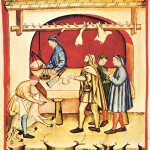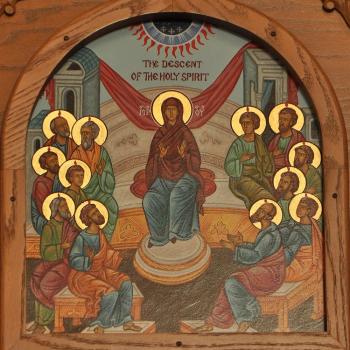![Works of Hugh of St Victor by Unknown Miniaturist, French (active 1190s Paris) (Web Gallery of Art: Image Info about artwork) [Public domain], via Wikimedia Commons](https://wp-media.patheos.com/blogs/sites/637/2017/04/Works_of_Hugh_of_St-Victor-192x300.jpg)
It is natural to want to feel praise for what we know. Children, after all, raise their hands in school to answer questions because they enjoy the esteem they get for knowing something no one else knows in class. Many of us keep to this spirit as we grow into adulthood. We value intellectual progress, and so we study hard, contemplate difficult philosophical questions and reason through those questions by what we know in order to produce answers which we hope will impress others. The answers which we give can be good, and help point to the truth, but we must realize that whatever answers we give will only be conventional representations of the truth, pointing to an absolute truth which transcends what we can know and speak about. Human reason is a limited tool, and where the absolute truth does not fit within the confines of that tool, then we find ourselves confounded with paradoxes; sometimes it might be able to work itself around those paradoxes, and produce something of value, but other times, it will find itself incapable of moving beyond them and stuck in an intellectual dead-end, similar to what happens if someone were to try to use a screwdriver which is too small for a particular screw.
The highest acquisition of the truth is found through humility, when a mind is willing to abandon itself and its normal mode of activity, emptying itself of all discursive thought, so that it can find itself experiencing the truth without any veil put over it. The experience will transcend human comprehension and so whatever words are used to point to it, though useful for others, will be derivative in nature and limited in their ability to demonstrate the truth itself. The experience will transcend all sense of knowing or understanding, though there will be imparted as a result of that experience, a form of knowing and understanding, an enlightenment, which transcends what could have been attained in any other fashion. The Spirit of Truth reveals the truth to those who, having been cleansed from sin, are able to silence their mind and stop all discursive thought. Such a person will then see and know the truth in a deified manner, for the person will see and know in and through God and not just themselves, because they have opened themselves to God and united themselves to him through his uncreated energies which manifest to their mind the wisdom of God.













